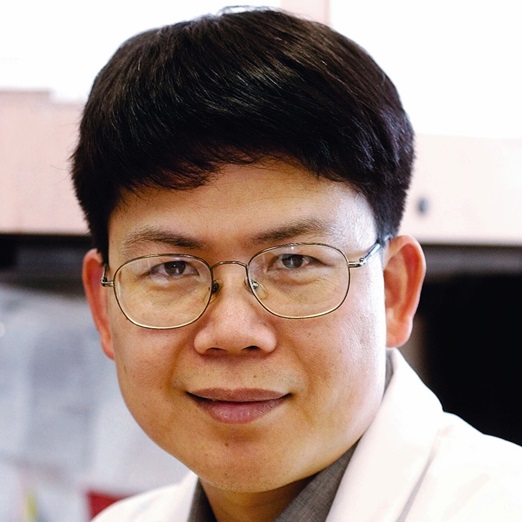SPEAKERS

Zhijian ‘James’ Chen
AFFILIATION:
UT Southwestern Medical Center, Dallas, TX, USA
POSITION TITLE:
Investigator, Howard Hughes Medical Institute
George L. MacGregor Distinguished Chair in Biomedical Science
Professor,
EDUCATION/TRAINING:
Fujian Normal University, Fuzhou, China B.S. 1985 Biology
SUNY-Buffalo, Buffalo, NY Ph.D. 1991 Biochemistry
Salk Institute, San Diego, CA Postdoc 1992 Molecular Biology
HONORS:
1991 - 1992 Anna Fuller Fellowship
1998 - 2001 Searle Scholar Award
2002 – 2007 Leukemia and Lymphoma Society Scholar
2002 – 2007 Burroughs Wellcome Fund Investigator in Pathogenesis of Infectious Disease 2002 – 2006 American Cancer Society Research Scholar
2005 The Welch Foundation Norman Hackerman Award in Chemical Research
2007 The Edith and Peter O’Donnell Award in Science by the Academy of Medicine, Engineering and Science of Texas
2008 Robert McLemore Professor in Medical Science, UT Southwestern Medical Center
2012 National Academy of Sciences Award in Molecular Biology
2013 Fellow, American Association for the Advancement of Science (AAAS)
2014 Member, National Academy of Sciences, USA
2015 Merck Award, American Society of Biochemistry and Molecular Biology (ASBMB)
2018 Lurie Prize, Foundation for the NIH
2019 Breakthrough Prize in Life Sciences
2019 Switzer Prize
2020 William B. Coley Award
RESEARCH INTERESTS:
The goal of Dr. Chen’s research is to elucidate the biochemical mechanism underlying innate immunity and cell signaling. In the last 20 years since the laboratory at UT Southwestern was established, Dr.Chen’s research team has made several important discoveries that contribute to the current understanding of innate immune signaling. 1) The discovery of a key role of ubiquitination in the activation of protein kinases in the NF-kB signaling cascade. Importantly, we found that TRAF6 is a ubiquitin E3 ligase that catalyzes K63 polyubiquitination, which activates TAK1 and IKK through a proteasome-independent mechanism. 2) They discovered MAVS, a mitochondrial membrane protein that plays a key role in the RIG-I antiviral innate immunity pathway. 3) They reconstituted the entire RIG-I signaling pathway in a cell free system and uncovered an important role of unanchored K63 polyubiquitin chain in activating RIG-I. 4) They discovered a prion-like property of MAVS and demonstrated that prion-like aggregation of MAVS activates and propagates antiviral signaling cascade. 5) They discovered a new enzyme called cyclic GMP-AMP synthase (cGAS), which functions as the cytosolic DNA sensor that triggers the production of type-I interferons and other immune regulatory molecules. Upon binding to DNA, cGAS is activated to catalyze the synthesis of a unique isomer of cyclic GMP-AMP (2’3’-cGAMP). This cGAMP molecule then functions as a second messenger that binds to and activates the adaptor protein STING, which in turn activates a signaling cascade to induce interferons. 6) They recently discovered that the cGAS-STING pathway is essential for intrinsic antitumor immunity and the therapeutic effects of immune checkpoint blockade in mouse tumor models. They also demonstrated that cGAS is essential for cellular senescence
PUBLICATIONS:
List of published work in Google Scholar:
https://scholar.google.com/citations?hl=zh-TW&user=MUow0FwAAAAJ